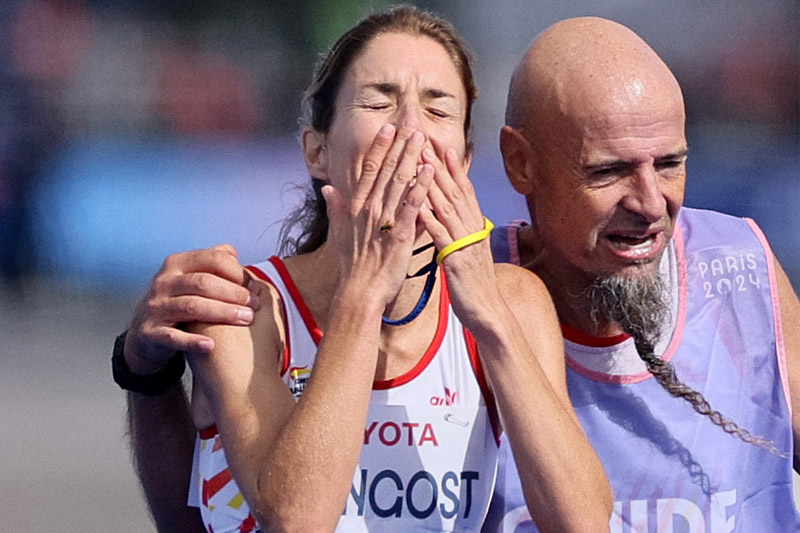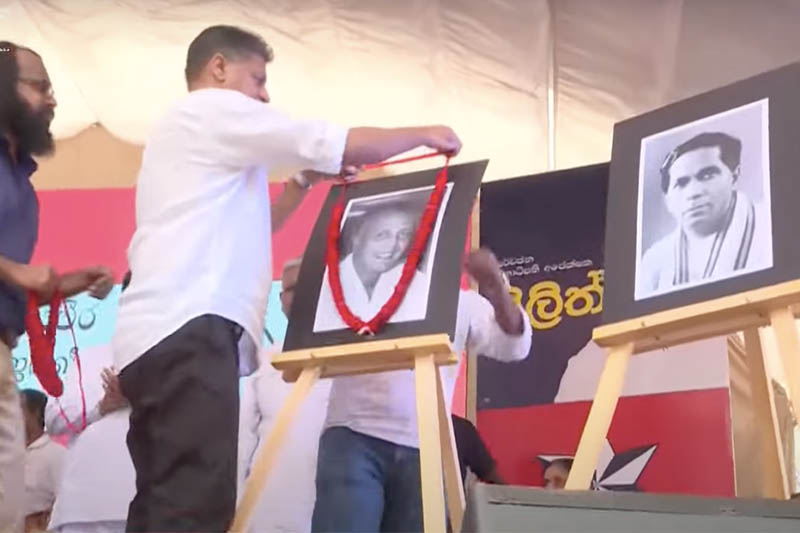A visually impaired runner was disqualified from receiving a medal at the Paralympics after helping her guide who had stumbled just yards from the marathon’s finish line.
The runner, Elena Congost of Spain, was denied a bronze medal in the race in Paris on Sunday, the final day of the Paralympics, because she briefly let go of the tether that connected her with her guide, a violation of the rules, as he lost his footing while cramping.
Blind and visually impaired athletes run with a guide, a sighted person who keeps them on the right path. Both guide and runner must at all times hold a tether, a short rope with a loop on each end that keeps them connected.
About 10 yards before the finish line, after three hours of running, Congost was on her way to third place when her guide, Mia Carol Bruguera, who was suffering from cramps, stumbled. Congost went to help steady him, briefly letting go of the tether in the process.
They quickly steadied themselves and crossed the line, more than three minutes ahead of the fourth place finisher, but the release of the tether led to the disqualification.
The International Paralympic Committee did not immediately respond to a request for comment.
Two Moroccan athletes finished in the top two spots, with Fatima Ezzahra El Idrissi winning and Meryem En-Nourhi coming in second. Upon Congost’s disqualification, the new bronze medalist was Misato Michishita of Japan.
“I would like everyone to know that I have not been disqualified for cheating, but rather I have been disqualified for being human and for an instinct that comes to you when someone is falling and to help or support them,” Congost told Marca, the Spanish sports newspaper.
“I’m devastated, to be honest, because I had the medal. I’m super proud of everything I’ve done, and in the end they disqualify me because 10 meters from the finish line I let go of the rope for a second.”
“And since I let go, that’s it, there’s no going back.”
Congost was competing in the T12 category at the Paralympics. T11 is for athletes with near-total blindness. T12 athletes are less impaired, and T13 the least impaired.
She won the gold medal in the T12 marathon in Rio de Janeiro in 2016. She then left competition and had four children, who are now between 1 and 6.
In a separate incident, a javelin thrower from Iran had his gold medal taken away on Saturday after two violations: making a throat-slitting gesture and then displaying a black flag with red lettering that was judged to be a political statement.
Iranian officials had argued that the gesture by the athlete, Sadegh Beit Sayah, was celebratory, and that the flag was a tribute to Umm al-Banin, an important figure in Shia Islam.
“I unfurled the flag as a mark of respect and devotion, not to promote any political agenda,” Beit Sayah told Inside the Games.
The competition was in the F41 category, for athletes of short stature, no taller than 4 feet 9 inches for men. Navdeep Singh of India was promoted to the gold medal spot.
(nytimes.com)




















